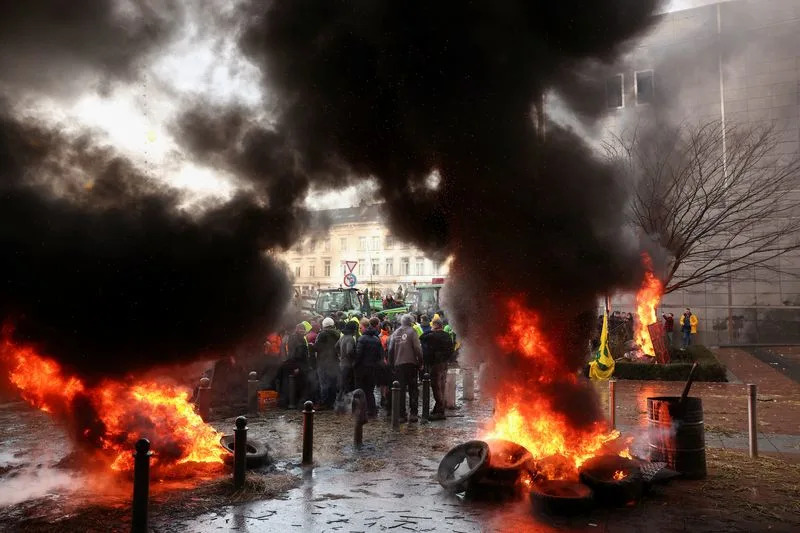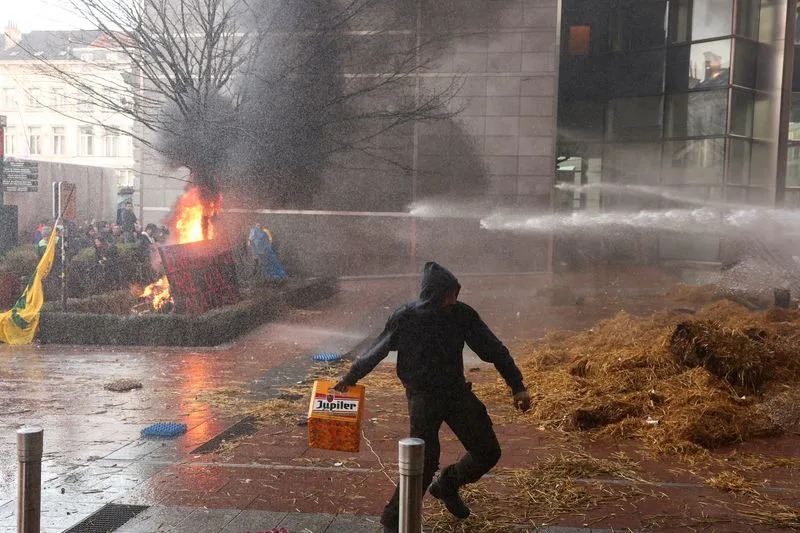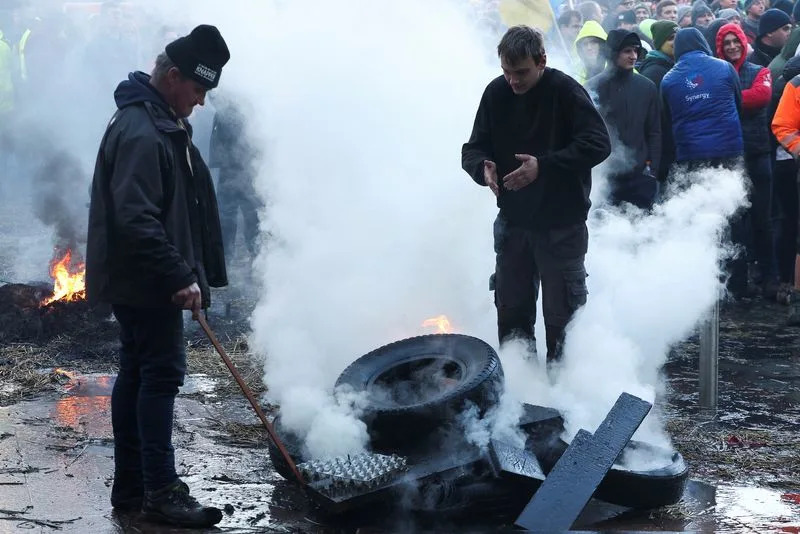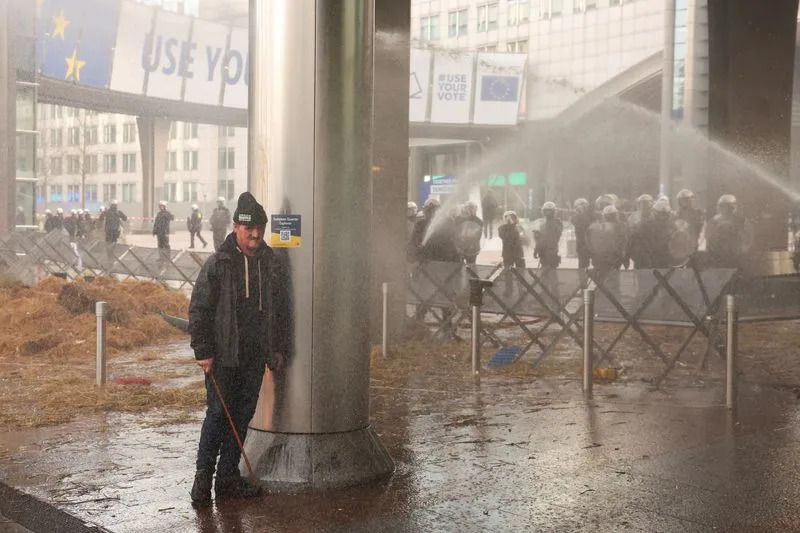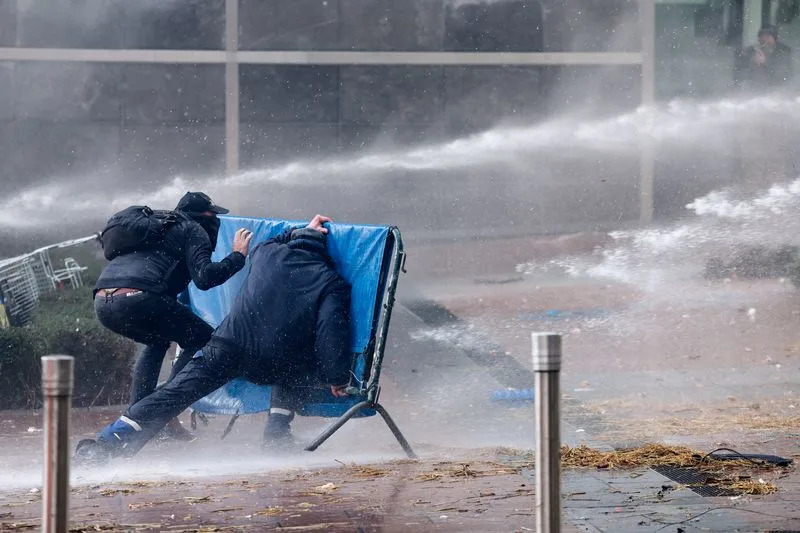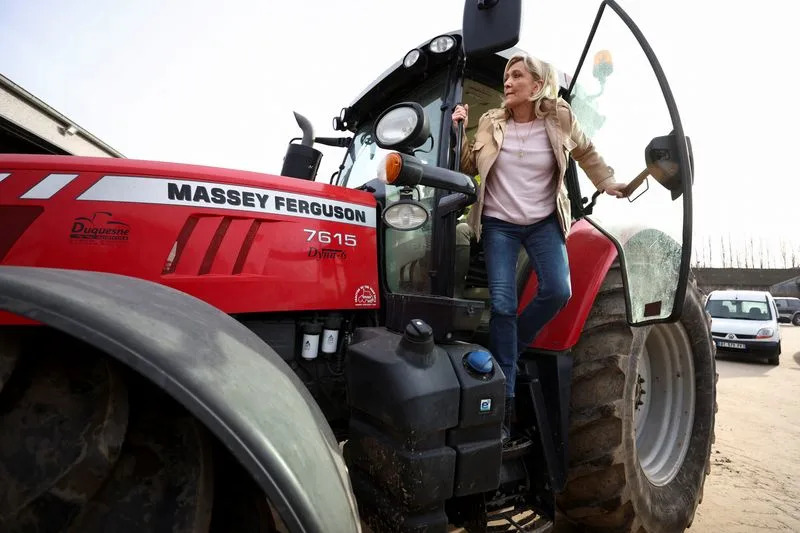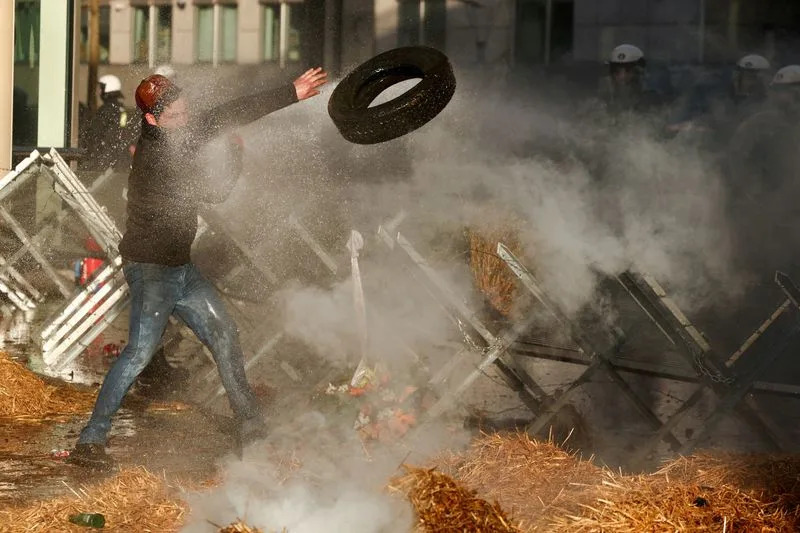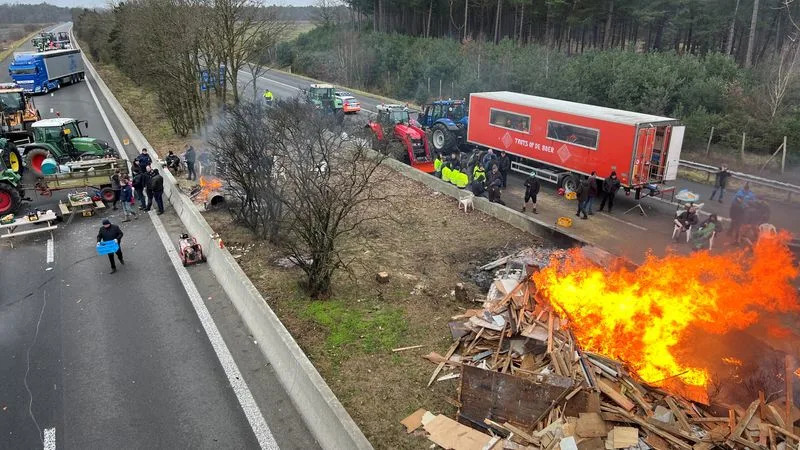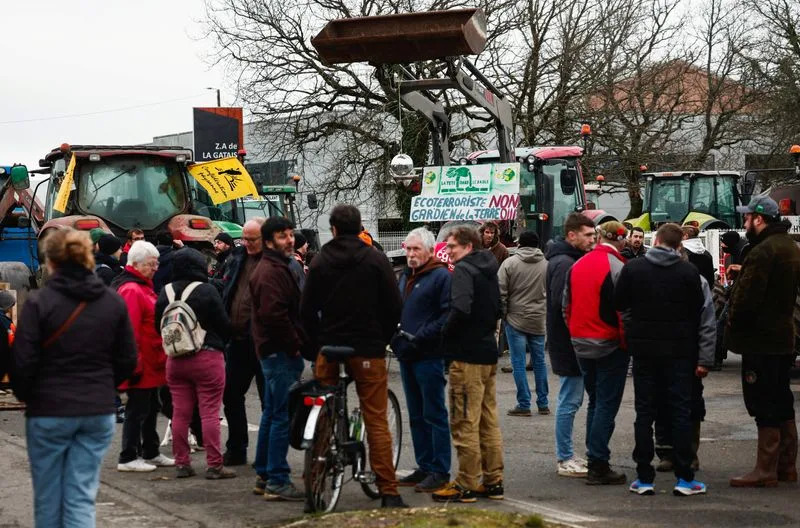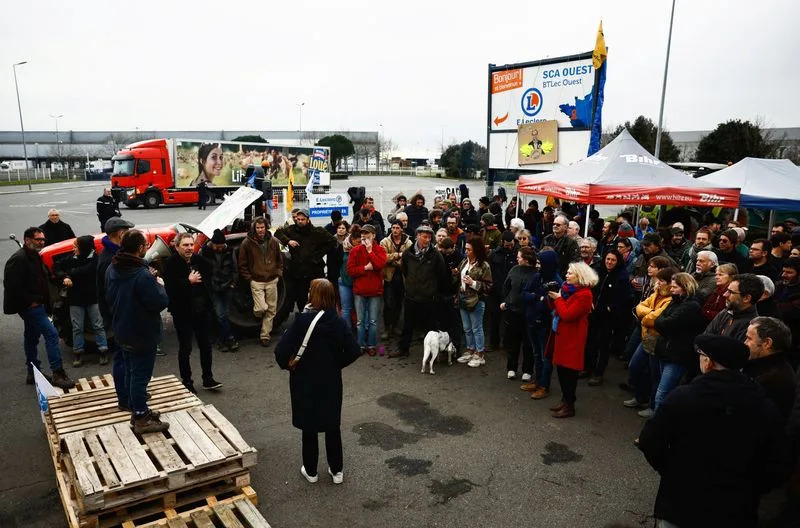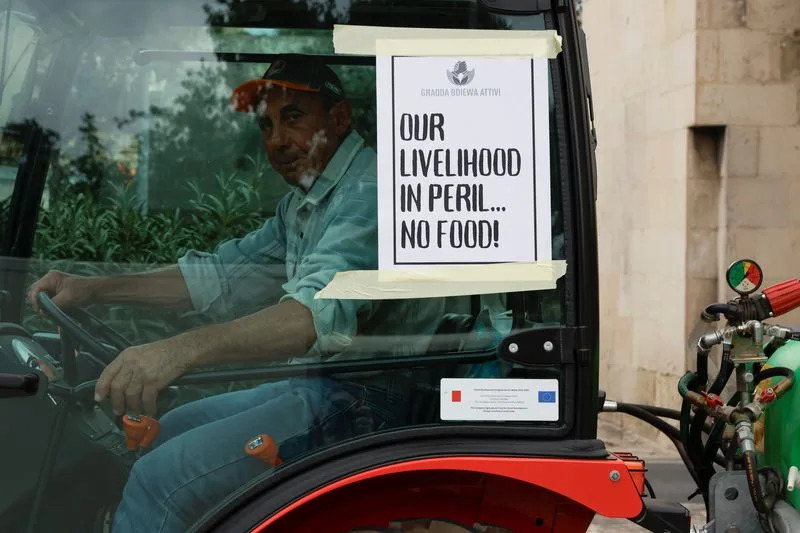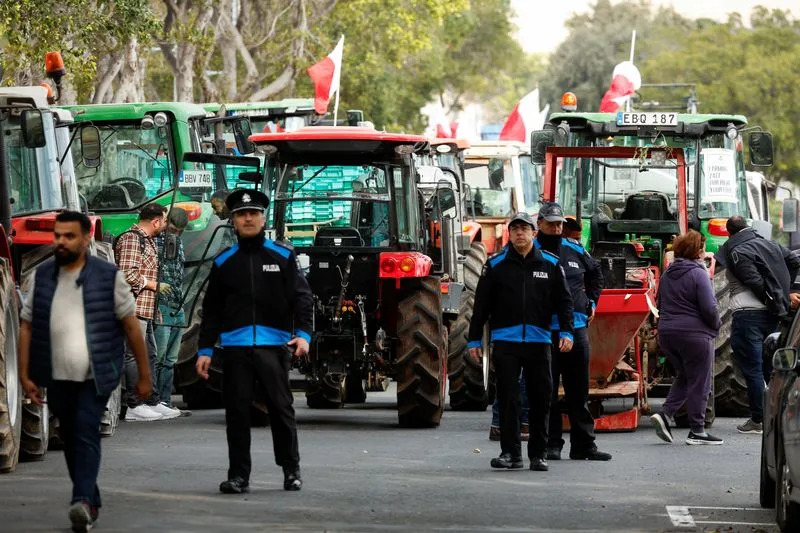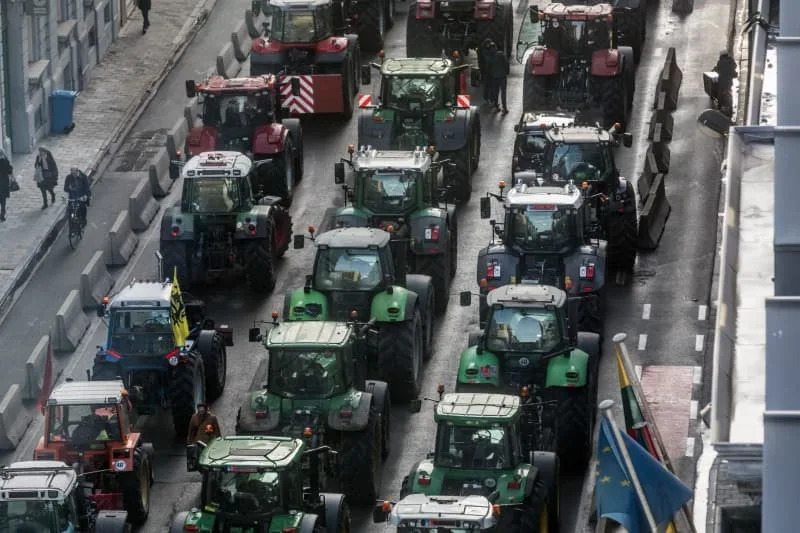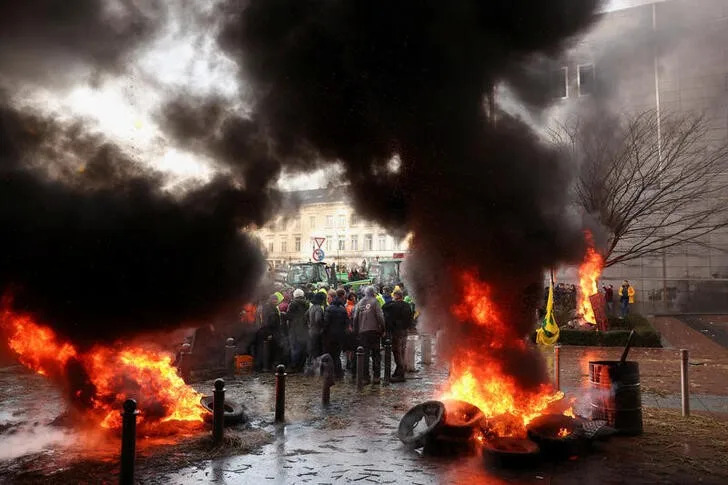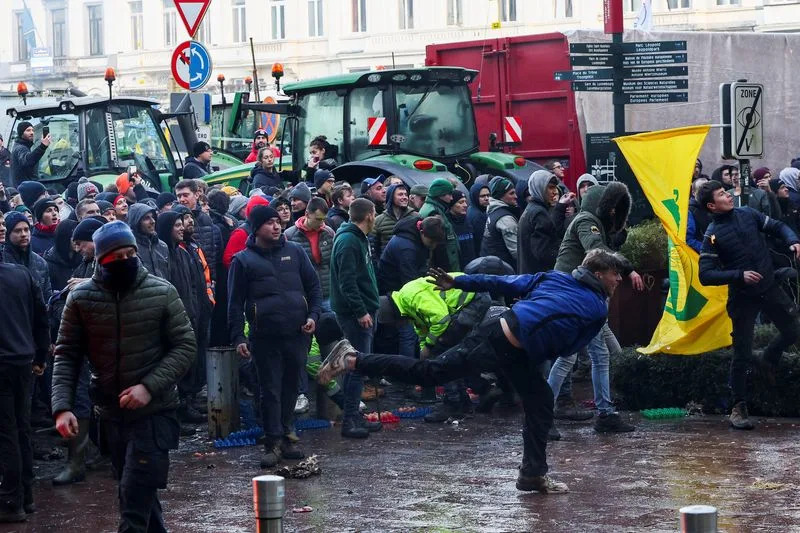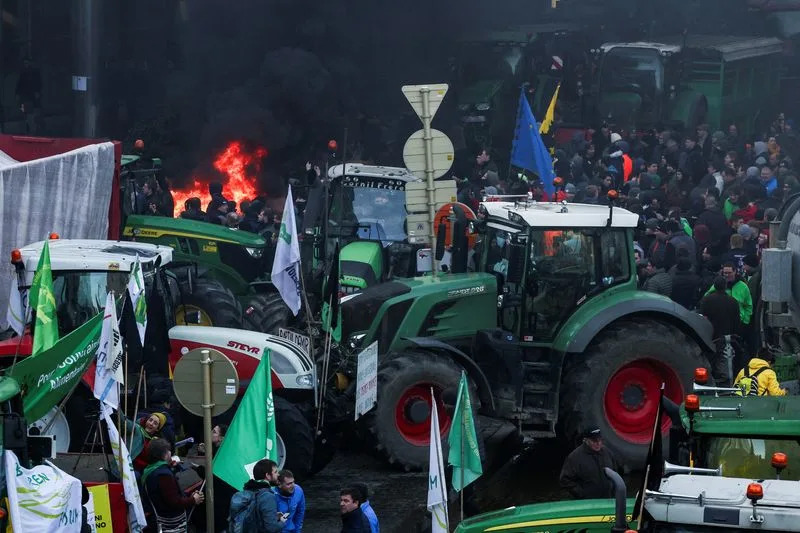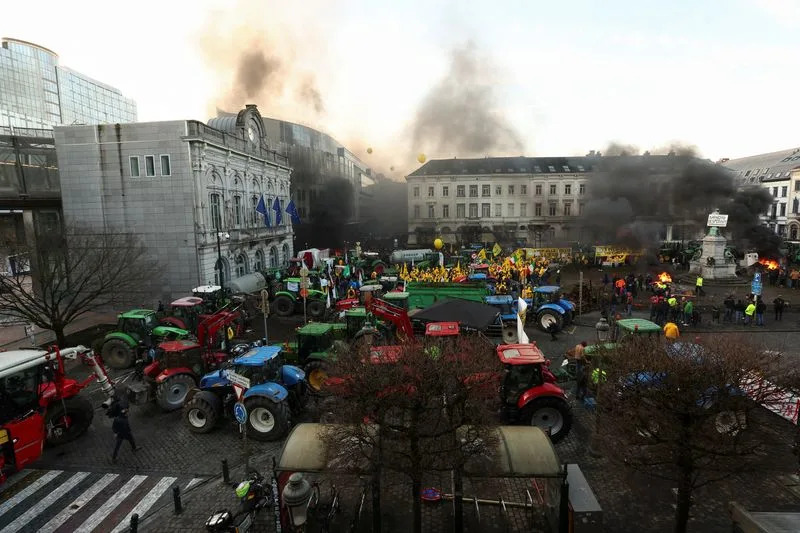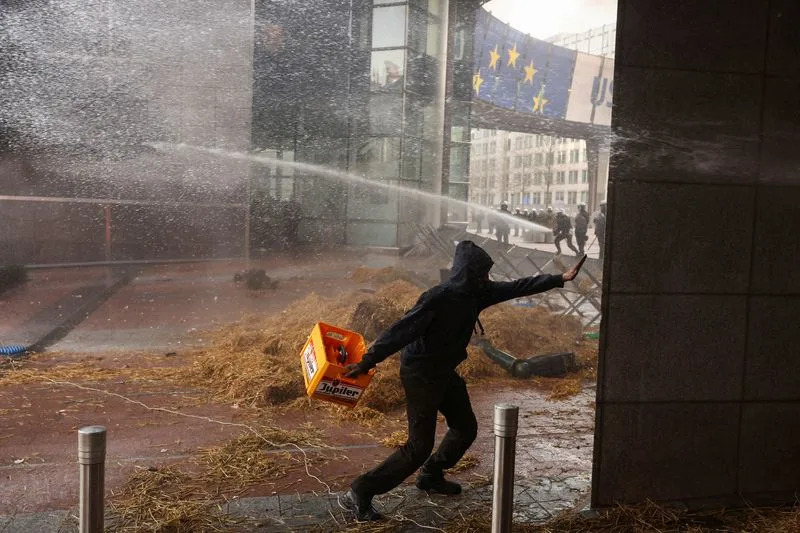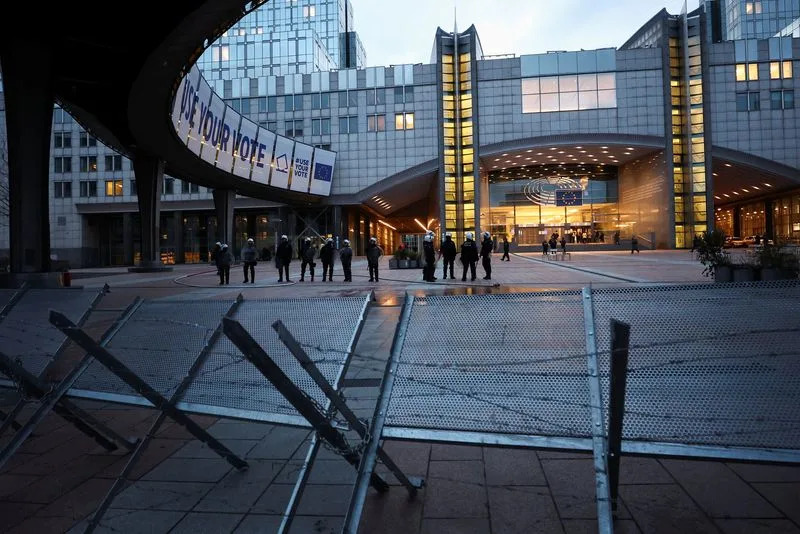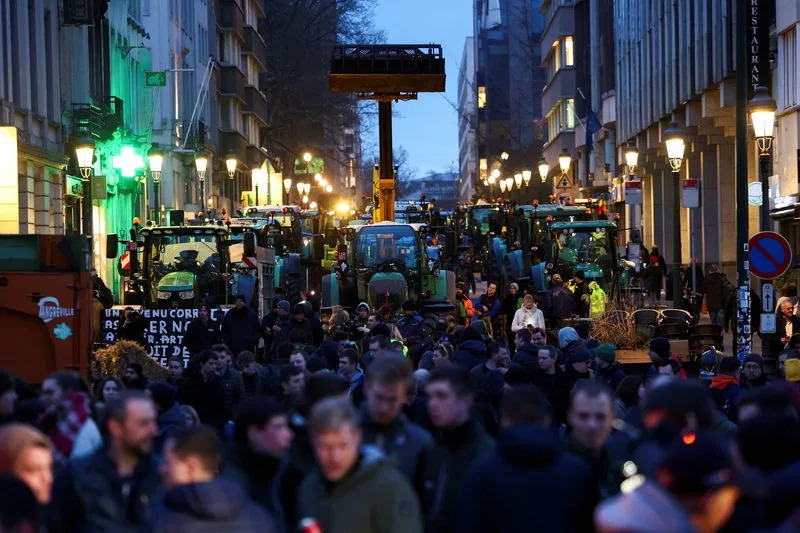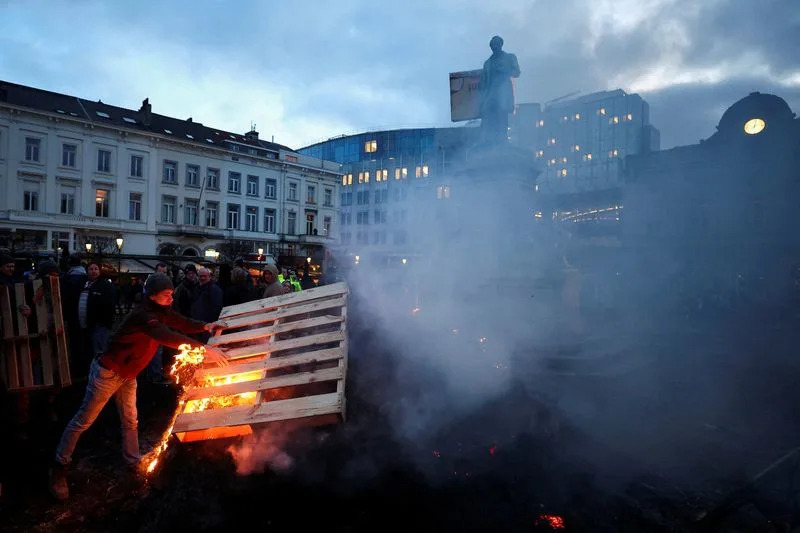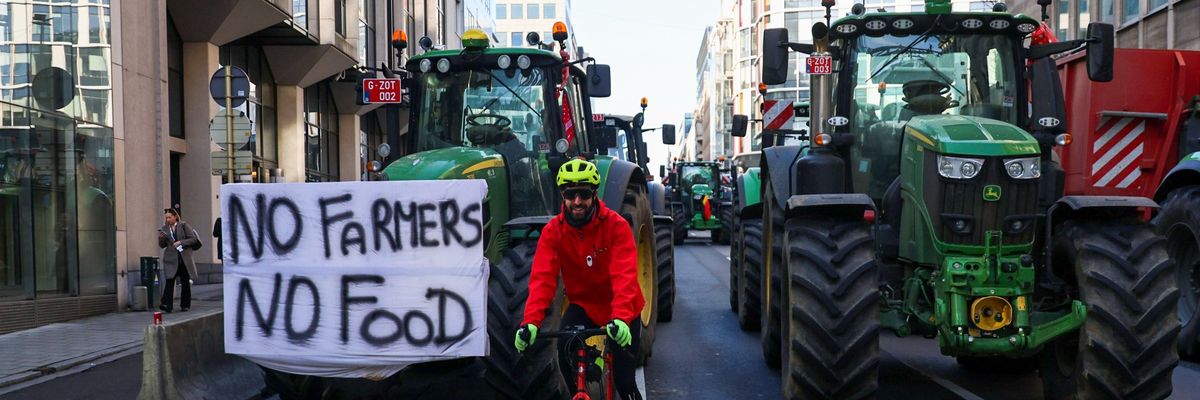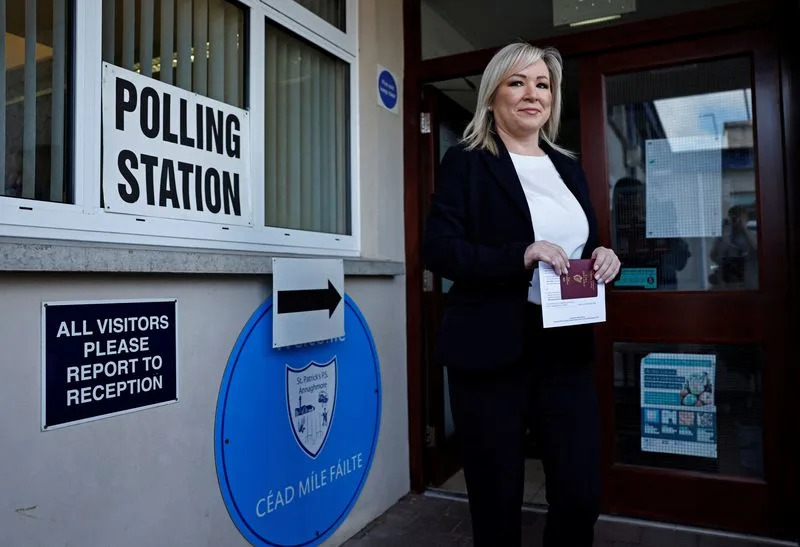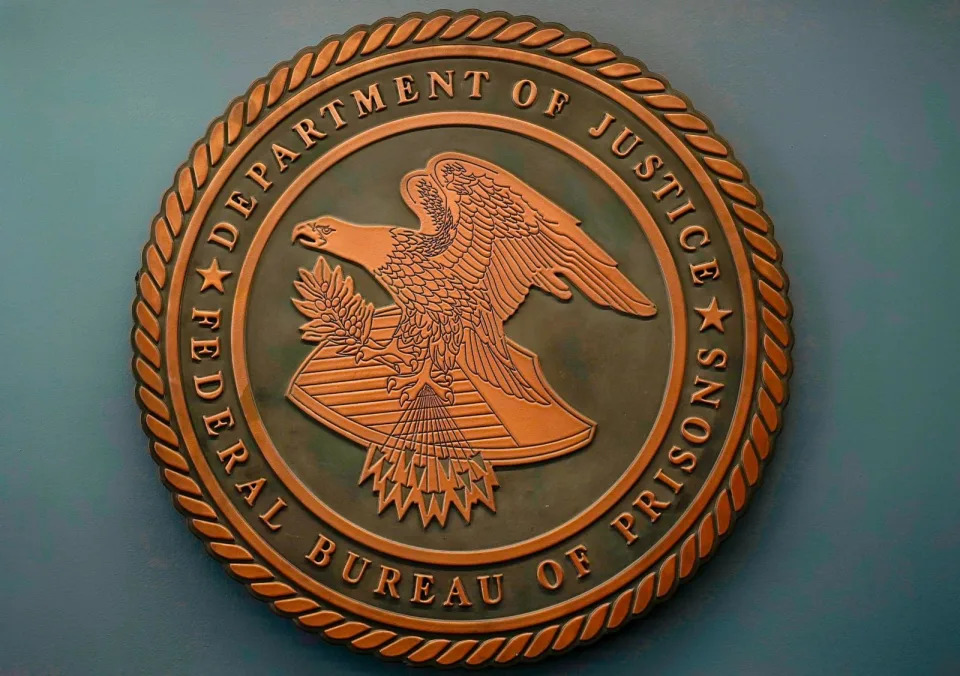By Michel Rose
MONTAUBAN, France (Reuters) - In the last 12 months, the cost of running Jean-Marie Dirat's lamb farm in southwest France has jumped by 35,000 euros ($38,000), driven up by increasingly expensive fertilisers, fuel, electricity and pesticides.
Money is so tight that this year he won't pay himself. To his surprise, he even calculated he would be eligible for the minimum welfare benefit, given to society's poorest.
"My grandfather had 15 cows and 15 hectares. He raised his kids, his family, without any problem. Today, me and my wife, we have 70 hectares, 200 sheep, and we can't even pay ourselves a salary," Dirat told Reuters at a roadblock made of hay bales that barred access to a nuclear plant.
Other farmers in the French southwest, where a nationwide movement started, complain about red tape and restrictions on water usage, as well as competition from Ukrainian imports let into the European Union to help its economy during the war.
Farmers elsewhere in Europe are similarly disgruntled, with protests in Germany, Poland, Romania and Belgium coming after a new farmers' party scored highly in Dutch elections.
Their blockades and pickets are exposing a clash between the EU's drive to cut CO2 emissions and its aim of becoming more self-sufficient in production of food and other essentials following Russia's invasion of Ukraine.
Just five months before elections to the European Parliament, the revolt is fuelling a narrative that the EU is riding roughshod over farmers, who are struggling to adapt to stringent environmental regulations amid an inflation shock.
French far-right leader Marine Le Pen's lieutenant Jordan Bardella blames "Macron's Europe" for the farmers' troubles. Le Pen herself says the EU needs to quit all free trade deals and that her party would block any future agreements, such as with Mercosur countries, if it wins power.
Worryingly for French President Emmanuel Macron and other EU leaders, opinion polls show farmers' grievances resonate with the public. An Elabe poll showed 87% of French people supported the farmers' cause and 73% of them considered the EU was a handicap for farmers, not an asset.
National governments are scrambling to address farmers' concerns, with France and Germany both watering down proposals to end tax breaks on agricultural diesel. The European Commission also announced new measures on Wednesday.
But the protests could amplify a shift to the right in the European Parliament and imperil the EU's green agenda. Poll projections show an "anti-climate policy action coalition" could be formed in the new legislature in June.
"The far-right's strategy is to Europeanise the conflict," Teneo analyst Antonio Barroso said. "Farmers are a small group, but these parties think they can attract the whole rural vote by extension."
VOICE FOR THE COUNTRYSIDE
Different political catalysts have spurred farmers from France to Romania into action.
In Germany, a week of protests against high fuel prices culminated last month in a rally of 10,000 farmers who gummed up central Berlin's streets with their tractors and jeered Finance Minister Christian Lindner.
The far-right Alternative for Germany party, running high in the polls on a lacklustre economy, tried to capitalise, dropping its usual opposition to subsidies and saying farmers demands should be met.
In March 2023, discontentment with climate and agriculture policy helped new party BBB win regional elections in the Netherlands, the world's second-biggest agricultural exporter.
Its list for June's EU elections will be led by Sander Smit, a former EU parliament adviser who wants to be "a voice of and for the countryside", campaigning for an easing of EU restrictions on agricultural land use.
"The EU must start working again for citizens, farmers, gardeners, fishermen, for communities, families and entrepreneurs," Smit, 38, said.
French unions like the powerful FNSEA have brought discipline to the farmers rallies, avoiding the violence seen during the "yellow vest" protests that rocked France in Macron's first term and already winning concessions from the government.
But unions say they can't control who farmers will vote for.
WINDS TURNING
In France, support from the EU's Common Agricultural Policy (CAP) means farmers, although politically conservative, have historically been more pro-European than the average voter.
In the 2022 presidential election, Le Pen did less well among farmers than in the rest of the population, while pro-European Macron outperformed, according to an Ifop/FNSEA poll.
Now, however, some farmers say they are tempted to vote for Le Pen's Rassemblement National (RN) in June in protest at the EU's climate drive, which they complain crushes production and leaves space for global competitors.
"Europe is putting us on a drip to let us die silently," Pierre Poma, a 66-year old retired farmer in Montauban in the southwest, told Reuters.
He joined the RN a few years ago and ran for a parliamentary seat in 2022, garnering 40% of the votes compared with the 15% Le Pen's party won in the same constituency in 2017.
Poma, who used to grow peaches, pears and apples, says he had to sell his house because he could not turn a profit. He blames red tape and the EU's farm-to-fork strategy he abhors.
After visiting farmers' motorway blockades in recent days, he is confident like-minded parties will be a force to reckon with in Brussels after June.
"Our group is growing, in Germany, in Hungary, elsewhere. It's the end of a world, the end of the policies of the past," Poma said.
($1 = 0.9258 euros)
(Writing by Michel Rose; Additional reporting by Anthony Deutsch in Amsterdam, Thomas Escritt in Berlin, Kate Abnett in Brussels and Anna Koper in Warsaw; Editing by Catherine Evans)
